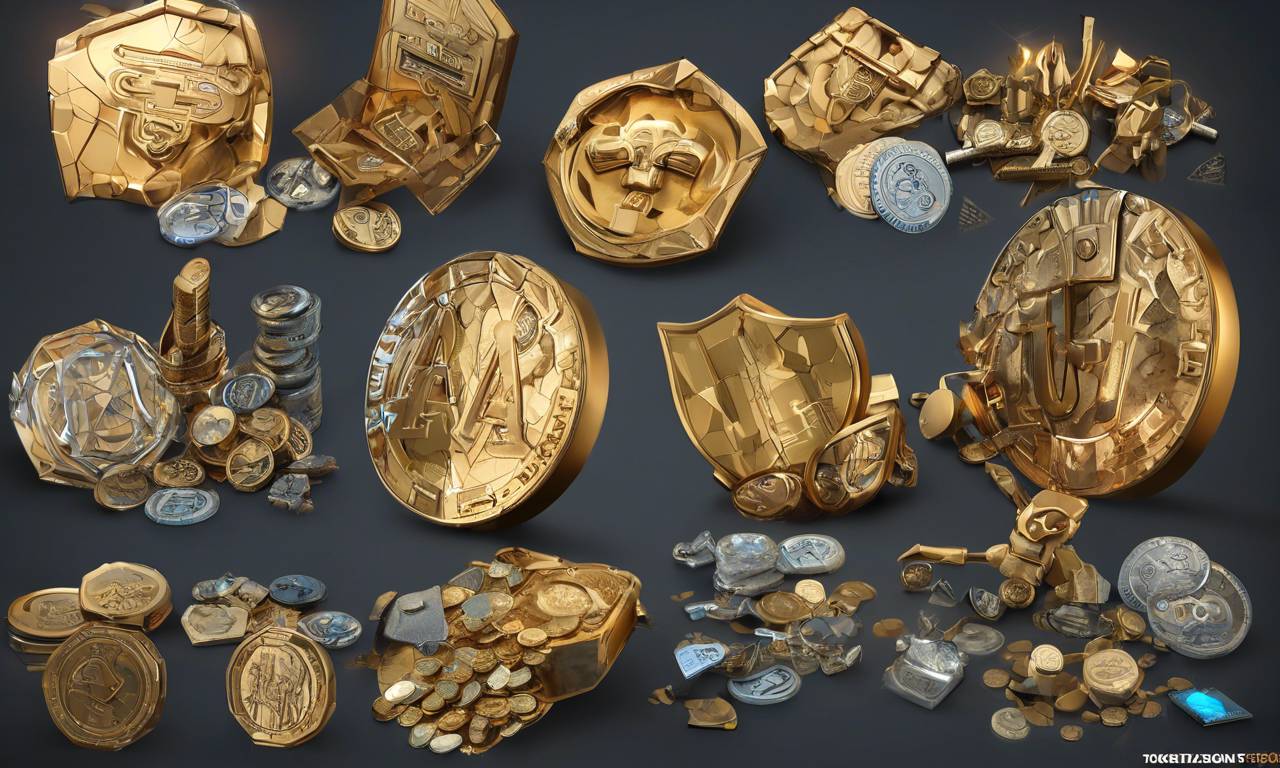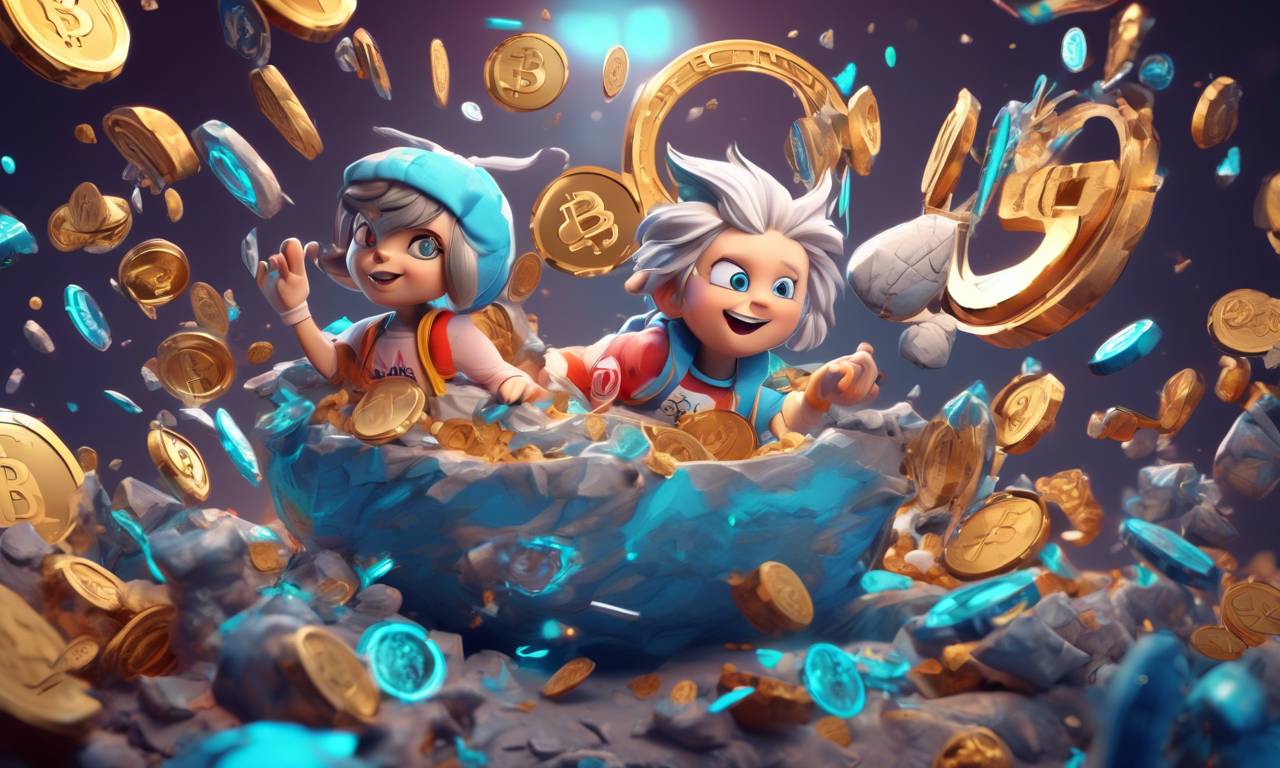Tokenization: Unlocking the Power of Digital Assets
Greetings, crypto enthusiast! Today, we will delve into the fascinating world of tokenization and explore how it unlocks the power of digital assets. Whether you are a seasoned investor or a curious beginner, understanding tokenization is crucial in navigating the ever-evolving cryptocurrency landscape. So, fasten your seatbelt and let’s dive in!
What is Tokenization?
Tokenization refers to the process of converting real-world assets into digital tokens that can be stored and traded on a blockchain. It allows for fractional ownership and enables the creation of new markets for assets that were previously illiquid or inaccessible to the average investor.
Imagine you want to invest in a luxurious property worth millions of dollars, but you lack the necessary funds. With tokenization, you can purchase a fraction of that property by acquiring digital tokens representing its value. These tokens can then be traded on various cryptocurrency exchanges, providing you with liquidity and flexibility.
Key Benefits of Tokenization:
- Liquidity: Tokenizing assets creates a liquid market where investors can buy or sell their holdings at any time.
- Accessibility: Tokenization opens up investment opportunities to a wider audience by reducing barriers such as high minimum investments or geographical restrictions.
- Fractional Ownership: Investors can own a fraction of an asset, enabling diversification and reducing risk.
- Transparency: Blockchain technology ensures transparency, as every transaction is recorded on a public ledger.
The Process of Tokenization
The tokenization process involves several steps that ensure seamless representation and trading of digital assets:
- Asset Selection: The first step is selecting the asset to be tokenized. It can be anything from real estate, art, commodities, or even intellectual property.
- Legal Compliance: To ensure regulatory compliance, the asset needs to undergo legal scrutiny to determine its eligibility for tokenization.
- Smart Contract Creation: Smart contracts are then created to define the rules and conditions of the tokenized asset. These contracts automate processes such as dividend distribution and voting rights.
- Token Generation: Once the smart contract is in place, tokens are generated on a blockchain platform. These tokens represent fractional ownership of the underlying asset.
- Liquidity Provision: The tokens are listed on cryptocurrency exchanges, providing investors with an avenue to buy, sell, or trade their holdings.
The Tokenization Revolution
The advent of tokenization has unlocked numerous possibilities across various sectors. Let’s explore some industries where tokenization is making a significant impact:
Real Estate
Owning real estate has traditionally been limited to wealthy individuals due to high investment requirements. Tokenization is disrupting this norm by allowing investors to own fractions of properties and benefit from rental income or property value appreciation. This democratizes access to real estate investments and increases liquidity in the market.
Art and Collectibles
The art market has long been associated with exclusivity and opacity. Tokenizing artwork and collectibles creates a transparent marketplace where ownership can be easily transferred. Additionally, it allows smaller investors to diversify their portfolios by owning fractions of valuable artworks.
Venture Capital
Tokenization is revolutionizing the world of venture capital by making it more accessible and liquid. Startups can tokenize their equity, enabling investors to buy and sell shares without the traditional limitations imposed by long holding periods or complex exit strategies.
Commodities
Tokenizing commodities like gold, oil, or agricultural products provides investors with a convenient way to gain exposure to these assets. It eliminates the need for physical storage, reduces transaction costs, and allows for fractional ownership.
Frequently Asked Questions (FAQs)
Q: Is tokenization only applicable to high-value assets?
A: No, tokenization can be applied to assets of any value. It offers a way to unlock liquidity and create new markets for both high-value and low-value assets.
Q: Are tokenized assets regulated?
A: The regulatory landscape surrounding tokenized assets is still evolving. However, many jurisdictions are actively working on creating frameworks to regulate this emerging market.
Q: How can I invest in tokenized assets?
A: To invest in tokenized assets, you typically need to register on a cryptocurrency exchange that supports the trading of these tokens. Ensure you comply with any legal requirements specific to your jurisdiction.
Q: What are the risks associated with tokenization?
A: Tokenization carries risks similar to traditional investments, such as market volatility and regulatory uncertainties. Additionally, there may be technical risks associated with the underlying blockchain technology.
In conclusion, tokenization represents a paradigm shift in how we perceive and interact with assets. By unlocking liquidity and democratizing access to various markets, it has the potential to reshape entire industries. So embrace the power of tokenization and explore the vast opportunities that await you in the world of digital assets!





 By
By
 By
By
 By
By
 By
By
